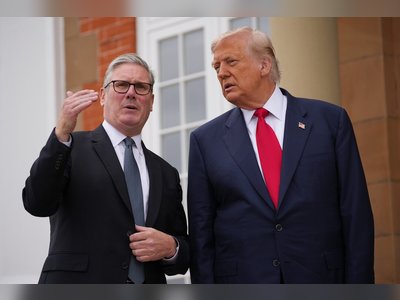Elon Musk’s Controversial Endorsement of Germany's AfD Sparks Editorial Resignation
Billionaire's Opinion Piece Provokes Resignation and Raises Concerns Over Influence on German Politics
In a surprising foray into European politics, Elon Musk, the billionaire entrepreneur known for his erratic influence on the global tech landscape, has sparked a furor in Germany by publicly endorsing the far-right political party Alternative for Germany (AfD).
Musk's support came in the shape of an opinion piece published in the Welt am Sonntag, a significant move highlighting his growing persona as a global political influencer.
The article, published online initially and then in print on a national platform, was not without controversy.
Eva Marie Kogel, the opinion section editor responsible for the publication, resigned in protest, citing her discomfort with the decision to print Musk's piece.
Kogel issued a resignation statement on X, the social media platform owned by Musk, marking her disapproval emphatically while linking to Musk’s article.
Musk’s endorsement attempts to recast the AfD's image, challenging perceptions of extremism despite the party's classification by Germany's domestic intelligence agency as a suspected extremism case.
Musk’s argument centered on the diverse background of the AfD's leadership, notably pointing out Alice Weidel's same-sex partnership with a Sri Lankan, as evidence of the party's moderate stance.
The timing of this intervention is critical.
German politics is in a state of flux following the collapse of the coalition government led by Chancellor Olaf Scholz.
With Germany nearing an election in February, the AfD remains a contentious element of its political landscape, holding a growing share of voter support while still isolated by mainstream parties.
Welt’s senior editorial figures justified their decision to publish Musk's piece under the banner of journalistic integrity and the necessity for open discourse.
However, they struck a discordant note with Musk’s conclusion that the AfD holds the solution to Germany's problems, particularly given the party's advocacy for Germany's exit from the European Union and closer ties with Russia and China.
Musk’s op-ed reflects a broader populist narrative that has gained traction across the West in recent years—challenging established political orders and institutions.
His influence is also keenly felt in the United States, where he maintains close ties with political figures like Donald Trump, an association further compounding the global implications of his political endorsements.
As Germany edges towards a pivotal election, the outpouring of discourse precipitated by Musk’s piece underscores the broader tensions in Western democracies contending with the resurgence of radical political ideologies.
The millionaire's engagement in such dialogues—fueled by significant media access and unfettered by geographic boundaries—raises questions about the role of elite figures and their capital power in shaping global political landscapes.
Musk's support came in the shape of an opinion piece published in the Welt am Sonntag, a significant move highlighting his growing persona as a global political influencer.
The article, published online initially and then in print on a national platform, was not without controversy.
Eva Marie Kogel, the opinion section editor responsible for the publication, resigned in protest, citing her discomfort with the decision to print Musk's piece.
Kogel issued a resignation statement on X, the social media platform owned by Musk, marking her disapproval emphatically while linking to Musk’s article.
Musk’s endorsement attempts to recast the AfD's image, challenging perceptions of extremism despite the party's classification by Germany's domestic intelligence agency as a suspected extremism case.
Musk’s argument centered on the diverse background of the AfD's leadership, notably pointing out Alice Weidel's same-sex partnership with a Sri Lankan, as evidence of the party's moderate stance.
The timing of this intervention is critical.
German politics is in a state of flux following the collapse of the coalition government led by Chancellor Olaf Scholz.
With Germany nearing an election in February, the AfD remains a contentious element of its political landscape, holding a growing share of voter support while still isolated by mainstream parties.
Welt’s senior editorial figures justified their decision to publish Musk's piece under the banner of journalistic integrity and the necessity for open discourse.
However, they struck a discordant note with Musk’s conclusion that the AfD holds the solution to Germany's problems, particularly given the party's advocacy for Germany's exit from the European Union and closer ties with Russia and China.
Musk’s op-ed reflects a broader populist narrative that has gained traction across the West in recent years—challenging established political orders and institutions.
His influence is also keenly felt in the United States, where he maintains close ties with political figures like Donald Trump, an association further compounding the global implications of his political endorsements.
As Germany edges towards a pivotal election, the outpouring of discourse precipitated by Musk’s piece underscores the broader tensions in Western democracies contending with the resurgence of radical political ideologies.
The millionaire's engagement in such dialogues—fueled by significant media access and unfettered by geographic boundaries—raises questions about the role of elite figures and their capital power in shaping global political landscapes.











